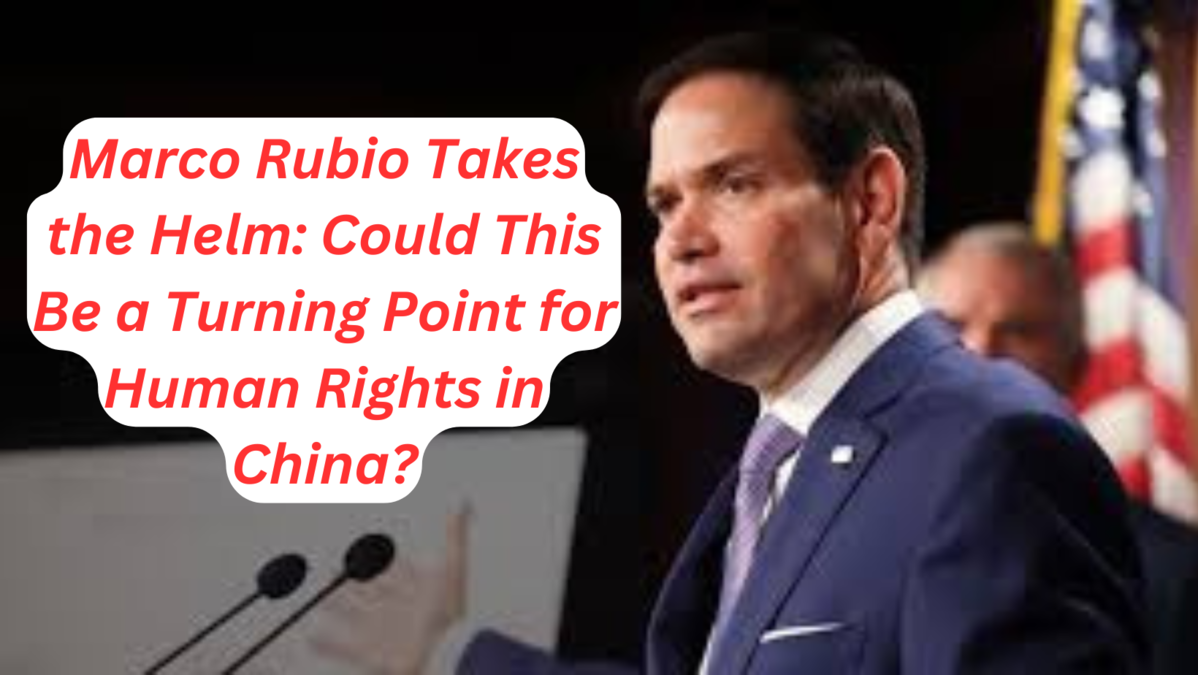Rubio’s Nomination to Head US Diplomacy: The Florida senator has the opportunity to enhance Donald Trump’s mixed legacy on holding Beijing accountable for human rights abuses while setting a precedent for a more principled foreign policy.
Marco Rubio’s nomination as US Secretary of State could bolster America’s stance on human rights in China, addressing Trump’s mixed record and paving the way for stronger advocacy for democracy and freedom.
Introduction – Rubio’s Nomination to Head US Diplomacy
Marco Rubio’s nomination to lead US diplomacy under Donald Trump’s second administration has caught the world’s attention. As someone who’s followed US-China relations closely, I see this as a critical moment for advancing human rights globally. Rubio’s history as a staunch critic of Beijing’s abuses makes his potential confirmation a promising development, especially given Trump’s past mix of firm actions and controversial rhetoric on China.
This moment feels like a crossroads. Rubio’s leadership could mean reinforcing sanctions against human rights violators or ensuring policies like the Uyghur Human Rights Policy Act are more than just symbolic victories. But this also comes with challenges, from addressing systemic gaps to countering Trump’s own history of harmful comments.
Rubio’s Human Rights Track Record
- Champion of Freedom: Rubio’s tenure as cochair of the Congressional-Executive Commission on China showcased his commitment to holding the Chinese Communist Party (CCP) accountable.
- Sanctions and Advocacy: Rubio was instrumental in pushing for sanctions on Chinese officials tied to Xinjiang’s atrocities and Hong Kong’s crackdown.
- Bipartisan Legislation: His sponsorship of laws like the Uyghur Human Rights Policy Act highlights his dedication to legislative action for global justice.
Trump’s Mixed Legacy on China’s Human Rights
- Key Accomplishments:
- Sanctions on Chinese officials and blacklisting of companies complicit in forced labor.
- Revocation of Hong Kong’s preferential economic status post-crackdowns.
- Signing of landmark human rights legislation.
- Missed Opportunities:
- Limited asylum support for Uyghur refugees despite recognition of their persecution.
- The China Initiative’s unintended impact on academic freedom and Asian-American communities.
- Problematic Rhetoric:
- Comments praising authoritarian leadership styles.
- Use of terms like “Chinese virus,” which fueled anti-Asian sentiment.
How Rubio Can Make a Difference
- Strengthening Sanctions: Enforce and expand sanctions against Chinese officials involved in human rights abuses in Xinjiang and Hong Kong.
- Promoting Refugee Support: Fast-track asylum cases for Uyghurs and ensure they find safe haven.
- Clear Messaging: Distinguish between the CCP and Chinese citizens to avoid perpetuating harmful stereotypes.
- Civil Society Empowerment: Partner with NGOs and activists to amplify the voices of human rights defenders within China.
Tools for Boosting Diplomatic Productivity
Let’s talk about tools that could enhance Rubio’s efforts as a leader. Modern diplomacy thrives on data-driven strategies and efficient communication systems:
- Human Rights Dashboards: Imagine having real-time data on rights violations globally. Tools like these can help Rubio prioritize sanctions and track accountability.
- Collaborative Platforms: Programs like Slack or Microsoft Teams could improve coordination between departments, ensuring no human rights case falls through the cracks.
- AI-Powered Translators: Bridging language barriers with advanced AI translators can make diplomatic outreach more inclusive and impactful.
As someone who values efficiency in any leadership role, I’ve seen firsthand how productivity tools—whether for communication or project management—can transform overwhelming tasks into streamlined processes. Rubio’s team could achieve much with the right technology in place.
A Call for Principled Diplomacy
- Focus on Democratic Values: The US must leverage its democratic standing to inspire hope and resistance among oppressed Chinese citizens.
- Avoiding Rhetorical Pitfalls: Counter Trump’s history of authoritarian praise with clear, unwavering support for freedom and democracy.
Conclusion
Rubio’s nomination signals hope for a stronger human rights agenda in US-China relations, but it’s no guarantee. His track record suggests he has the vision and resolve to lead with principles, provided he avoids past pitfalls and prioritizes the voices of the oppressed.
For America, this is an opportunity not just to counter Beijing’s authoritarianism but to show the world what leadership rooted in human dignity looks like. As someone who believes in the transformative power of diplomacy, I hope Rubio can steer the US toward a new era of justice and accountability.
